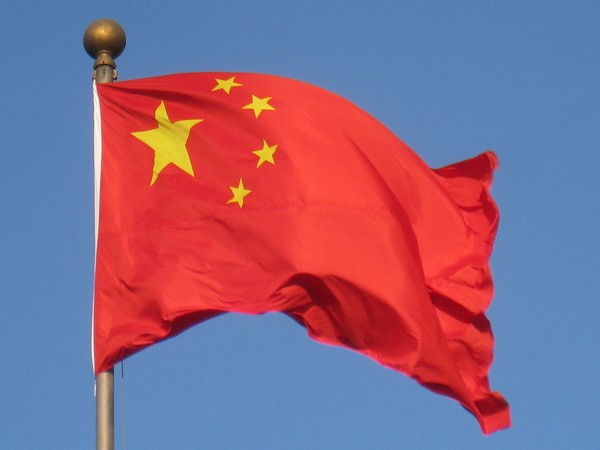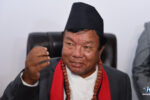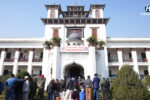It could be a turning point in the history of Tibet, particularly after its forced occupation by China, as US lawmakers belonging to the Republican party and the Democratic party on June 12 supported a bill on ‘Resolution of the Tibet-China Dispute Act’ which if turns into a law it would challenge Beijing’s claim over Tibet.
Not only that alone. The US bill on becoming law would lead to creating a mechanism to counter the East Asian country’s disinformation on Tibet’s history, people and institutions, South China Morning Post said.
Earlier in May, the US Senate passed the bill wherein ‘Tibet’ has been identified not just the Chinese government-led earmarked territory of the Tibet autonomous region but also Tibetan areas of Gansu, Qinghai, Sichuan, and Yunnan provinces, the Hong Kong-based English daily said.
This is the first time in the history of Tibet’s more than 73-year-old struggle for independence, the US lawmakers have taken a major step against China’s forcible annexation of the region, nicknamed the ‘Roof of the world’ for its towering peaks.
It has taken place at the time when Tibetans’ spiritual leader, the Dalai Lama is about to visit the US for the medical treatment of his knees.
By doing this, Chinese authorities have consistently tried to demoralise followers of the Dalai Lama as they see him as an enlightened being, “who has chosen to take rebirth in order to serve humanity.”
While it is all set to further sour relations between the US and China, already under strain owing to Washington DC’s trade war with Beijing and the former’s overt involvement in the Taiwan Strait.
It will set in motion much needed international support for Tibetans and their cause as the China Communist Party-led government has stepped up its repressive policies against the people of the region by eroding their language, culture, and religion.
A few days ago, Canada’s House of Commons passed a motion acknowledging Tibetan self-rule determination. According to Radio Free Asia, the motion recognizes Tibetans as a “people and a nation” with the inherent right to determine their own social, economic, cultural, and religious policies, including the selection of the next Dalai Lama.
The aim behind passing the motion was to make Canadians recognise that Tibetans are victims of systematic persecution by China.
In Europe too, Tibetans’ cause is taking centre stage and it is evident in the European Union member states’ reaffirmation of redoubling their support for the freedom struggle of Tibetan people.
In the just concluded elections for the European Parliament, a total of 115 candidates from 16 European Union countries committed to defend the fundamental freedom of Tibetan people.
A recent report by the Human Rights Watch said Chinese Authorities have, in violation of International Law, relocated since 2016, 500 villages in Tibet, affecting 140,000 residents.
In its 70-page report, the HRW cites China’s official data which suggests that more than 930,000 Tibetans in rural areas have been relocated since 2000, with approximately 76% of these relocations taking place since 2016.
To make Tibetans comply with their relocation order, Chinese authorities have used coercive measures, including repeated home visits and threats of punishment, the HRW report said.
But China justified the relocation of Tibetans by stating that it has been undertaken to “eradicate absolute poverty and to “protect the ecological environment.” It is seen as China’s usual practice of denouncing the truth.
A similar approach it had adopted last year when UN Special Rapporteurs claimed that China separated one million Tibetan children from their families and forcibly placed them in boarding schools as part of its attempt to assimilate them religiously, culturally, and linguistically into the dominant Han Chinese culture.
“We are alarmed by what appears to be policy of forced assimilation of the Tibetan identity into the dominant Han-Chinese majority, through a series of oppressive actions against Tibetan educational, religious and linguistic institutions,” Fernand de Varennes, UN Special Rapporteur on minority issues; Farida Shaheed, Special Rapporteur on the right to education and Alexandra Xanthaki, Special Rapporteur in the field of cultural rights, said in a joint statement on February 6, 2023.
Debunking this claim of the UN experts, China’s Foreign Ministry Spokesperson Mao Ning had then said, “In the case of China’s Tibet, this is a region of high altitude and highly scattered population in many areas.
For children from herding families in particular, they have to travel long distances to get to school. If schools were to be built in every place the students live, it would be very difficult to ensure adequate teachers and quality of teaching in each school.”
But the UN experts said there was more to something than met the eye. In their report they said the study material for Tibetan children and environment were built around Han culture; lessons were conducted solely in Mandarin Chinese (Putonghua) with scant reference to Tibetan history, religion, and “certainly not exiled spiritual leader the Dalai Lama.”
Since China’s economy has started floundering and President Xi Jinping’s grip on power has begun facing challenges, US, Canada, and the European Union’s move to give a push to campaign against Beijing on Tibetans continued human rights violations, is expected to give further pain to China.
In fact, for years, exasperated at the Dalai Lama’s growing international influence, China has tried hard to belittle the Tibetan spiritual leader’s stature and position by calling him a “separatist” and a “wolf in monk’s robes.”
By doing this, Chinese authorities have consistently tried to demoralise followers of the Dalai Lama as they see him as an enlightened being, “who has chosen to take rebirth in order to serve humanity.”
In her blog on the 14th Dalai Lama, Kerry Kennedy, a human rights lawyer, and activist says, “The 14th Dalai Lama became an international figure beloved for his humour, warmth, spiritual wisdom, and humour.
To this day, he is highly respected for his commitment to nonviolence, his desire to build bridges across faiths, and his efforts to gain freedom for Tibet.”
China resents such eulogies for the Tibetan spiritual leader and instead, sees them as ways and means to sustain Tibetans’ love and reverence for their spiritual leader, culture, and religion.
To suppress all this, Chinese authorities have resorted to harsh, draconian methods against Tibetans and they include building an extensive network of surveillance against them and collecting sensitive data about their day, today activities through AI and other high-tech mechanisms.
Since China’s economy has started floundering and President Xi Jinping’s grip on power has begun facing challenges, US, Canada, and the European Union’s move to give a push to campaign against Beijing on Tibetans continued human rights violations, is expected to give further pain to China.
As such, how the East Asian country tackles renewed Western push on Tibet has to be seen, say close China watchers.









Comment